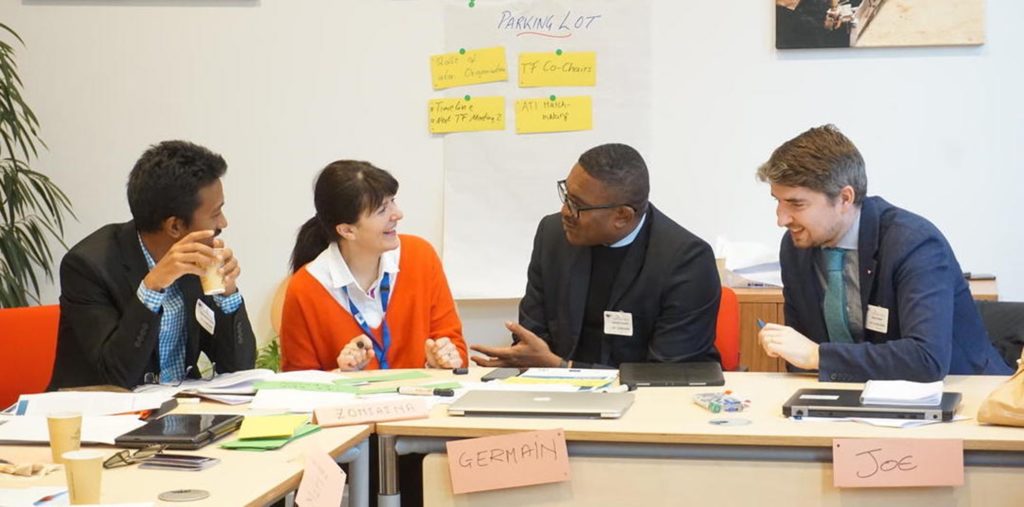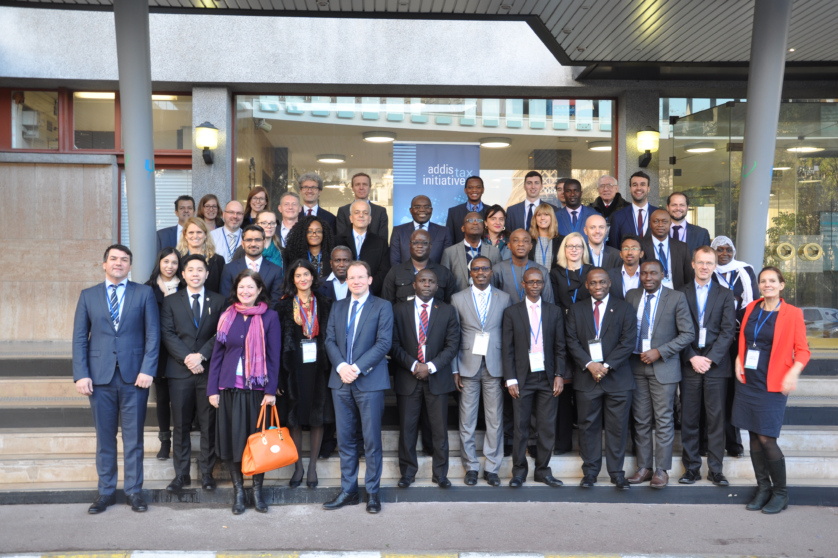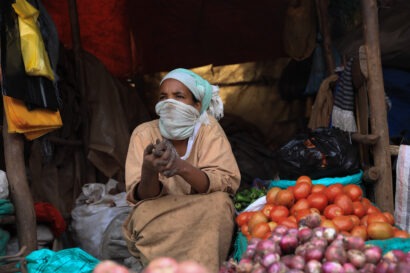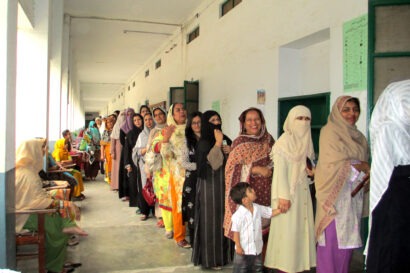It is widely recognised that “business as usual” will not close the estimated financing gap of USD 2.5 trillion that is needed annually to achieve the Sustainable Development Goals (SDGs) by 2030. United by this realisation, the members of the multi-stakeholder-partnership Addis Tax Initiative (ATI) recently presented the ATI Declaration 2025 to renew political buy-in and reinforce their commitment to financing socio-economic development through domestic revenues, which are considered the most reliable source of funding for sustainable development.
Building on the original declaration from 2015, this new declaration brings new energy and enthusiasm to the field of domestic revenue mobilisation (DRM). It emphasises the importance of fostering reforms to strengthen tax systems and generate revenues as a means to finance SDG-relevant sectors, such as health and education. In the new Declaration, equitable tax policies, efficient and transparent revenue administration, capacity development, policy coherence, and accountability are all key.
What has the ATI achieved in the last five years?
The ATI was initiated in 2015 in the course of the Third International Conference on Financing for Development in Addis Ababa, Ethiopia, to support the implementation of the Addis Ababa Action Agenda on Financing for Development. Since then, more than 60 developing countries, providers of development cooperation and supporting organisations have joined the initiative.
The ATI has played an impartial and constructive role in fostering exchange and inclusive dialogue, ensuring that the voices of all members, particularly those of developing countries, are heard in global discussions on DRM. It has made important contributions to increasing available financing for development through agenda setting, donor coordination, peer learning, and enhancing political commitment.
From 2015 to 2018, ATI providers of official development assistance (ODA) have increased their ODA for DRM by 69%. ATI developing countries increased their average tax-to-GDP ratio to 15.6% in 2018, up from 15% in 2016. Between 2015 and 2018, grant ODA for DRM from ATI development partners increased more rapidly for the current group of 25 ATI partner countries (by 52%) than for non-ATI partner countries (by 27%). Being an ATI partner country signals political will to implement tax reforms and a strong interest in receiving technical assistance and support for DRM.
New commitments and priority areas
The four commitments laid out in the ATI Declaration 2025 are:
- ATI partner countries commit to enhance DRM on the basis of equitable tax policies as well as efficient, effective and transparent revenue administrations. ATI development partners commit to support such reforms.
- ATI development partners collectively commit to maintain or surpass the 2020 global target level (USD 441.1 million) of DRM cooperation for country-owned tax reforms.
- ATI members commit to apply coherent and coordinated policies that foster DRM and combat tax-related illicit financial flows.
- ATI members commit to enhance space and capacity for accountability stakeholders in partner countries to engage in tax and revenue matters.
The declaration also prioritises new issues. While the original ATI Declaration focused on the quantity of domestic revenues and official development assistance, the new 2025 Declaration adds a qualitative dimension to both revenue collection in developing countries and the provision of DRM support by donors. Beyond revenue generation, the new declaration emphasises the need to reduce inequalities, foster economic growth, and advance gender equality and the protection of the environment.
Development partners also commit to ensuring that partner countries take the lead in their own domestic tax reforms. The emphasis of accountability stakeholders (e.g. civil society organisations) as important players in the tax and revenue debate is a new addition altogether, stemming from an agreement among ATI members that governments must be held accountable for their actions if they are to enhance tax morale, the social contract, and social cohesion.

Reaching consensus inclusively
The new ATI Declaration was developed in a highly participatory process by a nine-member task force representing the three stakeholder groups in the ATI equally – developing countries, providers of official development assistance and supporting organisations. In the task force, the African Tax Administration Forum (ATAF), the European Commission, Georgia, Germany, Kenya, Madagascar, Norway, the Organisation for Economic Cooperation and Development (OECD) and Oxfam worked closely together. The entire membership was involved in the course of several rounds of feedback, making it a joint effort by all ATI members.
The right time for collective action on DRM
The global economic fallout of the Covid-19 pandemic has hit developing countries particularly hard. While the needs for public spending have skyrocketed, public revenues have collapsed. The International Monetary Fund estimates that the pandemic will lead to USD 28 trillion in lost output, and according to the World Bank, it has been responsible for up to 115 million additional people falling into extreme poverty this year.
With the widening gap between financing needs and available public revenues, the pandemic highlights once again the importance of raising domestic revenues sustainably and equitably in order to fund effective government responses. The ATI can play an essential role in fostering collective action in this area by promoting fair and effective DRM, policy coherence, and stronger social contracts through partnerships and knowledge building.

How will the new declaration be implemented?
The declaration was developed in a spirit of partnership and mutual accountability to enhance collective action to enable tax systems that work for people and advance the SDGs. Developing countries and providers of official development assistance that adopt the declaration are responsible for attaining the commitments by 2025. To support the implementation of the four commitments, the ATI has established four consultative groups and will develop a new monitoring framework, which will provide indicators to track progress towards the achievement of the commitments.
See more information on the Addis Tax Initiative website.



